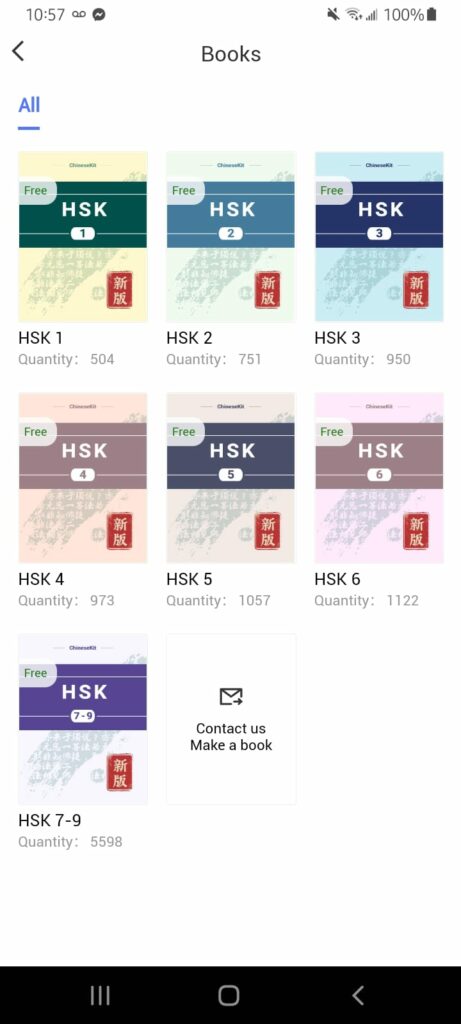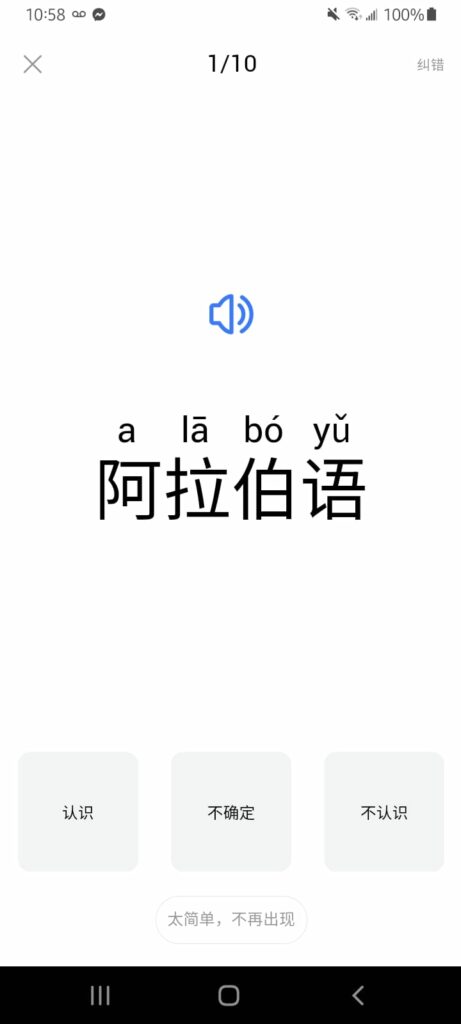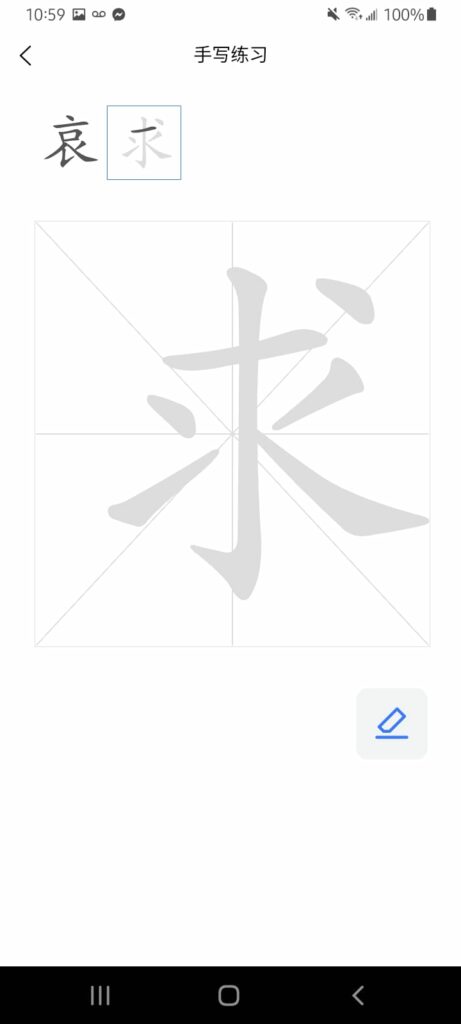The New HSK 3.0 is here. It adds levels 7, 8, and 9 to the already-existing HSK 1-6.
For more information about HSK 7, 8, and 9, please check here: The New HSK 3.0: Everything You Need to Know. This article will only contain resources for advanced learners to prepare for the New HSK.

What skills will the New HSK test?
The HSK 7-9 will actually be administered as one “Advanced” test, and you will receive a score of either 7, 8, or 9.
New HSK 7-9 will test the following:
- Reading
- Know 3,000 characters and 11,092 vocab words
- Reading speed: 200-240 characters a minute
- Grasp the meaning, structural composition, and logic of the piece
- Able to identify grammar, language, and logical mistakes in advanced pieces
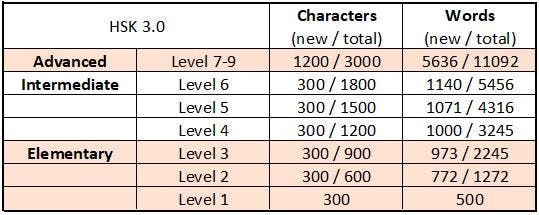
- Listening
- Understand audio clips of lectures or news, around 800 characters in length
- Be able to understand the social and cultural context and connotations of the piece
- Speaking
- Be able to discuss and debate topics using advanced grammar, correct pronunciation, and rich vocabulary and content
- Natural speech
- Awareness of cultural differences and gaps
- Clearly articulate your own position with strong logic and fluent speech
- Writing
- Know 3,000 characters and 11,092 vocab words
- Practical writing, expository prose, argumentative writing, and professional writing
- Clear prose, strong logic and grammar
- Rich and natural use of idioms, common sayings, and rhetorical styles
- Translation
- Translate passages from Chinese –> English and English –> Chinese
- Accuracy of translated content
- Able to simultaneously read, interpret, and translate Chinese text
- Translation is not only grammatically correct but also uses rhetorical devices and appropriate style
https://www.youtube.com/watch?v=0oobjKP0Z7U
Who should take the New HSK 3.0?
The HSK 7, 8, and 9 are very advanced and will definitely prove you are an expert and near-native in Mandarin Chinese. If you want to learn the language to the highest level possible, we welcome you to take the HSK as a marker of your impressive ability and improvement!
On the other hand, HSK 3.0 may not be necessary for you. Most Chinese-taught Bachelor’s programs require a minimum score of HSK 4 or 5 to take courses. Most business Chinese courses require a base level of HSK 3. HSK 5 should also be sufficient for you to conduct business in China and work with a Chinese company.
The HSK 3.0 might be for you if you want to study for a Master’s or PhD in Chinese, work in a highly specialized field in China, or want to increase your own expertise in the Chinese language to be a teacher, translator, journalist, or another career.

Resources to prepare for the New HSK test levels 7-9
Here’s everything you need to know to successfully prepare for the New HSK!
Audio Resources
At this level, you should be able to listen to Chinese audio sources such as news reports, lecture series, online vlogs, or Douyin content with little comprehension difficulty at native speed or faster. You should be able to understand different Chinese accents (though you won’t be expected to be fluent in Cantonese or Hakka). You should be familiar with current events, cultural terms, and specialized vocabulary. At this level, you should be able to quickly understand the meaning of unfamiliar terms through the context of the audio or your background knowledge in Chinese life and culture.
- 听中文学汉语 Chinese Listening& Learning – YouTube channel with native-speed news and other audio clips + transcription
- 故事FM – China-based news podcast
- 美加新闻播报 – Seattle-based news podcast
- Bilibili – try watching some popular channels
- 喜马拉雅FM – popular Chinese podcast website/app

A good Chinese audio study session has three parts.
- Listen to the audio at full speed with no breaks
- Listen to the audio at a slower speed, checking unfamiliar words with a dictionary
- Listen to the audio at full speed again (at this point you should understand all of it)
The BLCU Introduction to Chinese Culture Online Course (12 90-minute videos) and Contemporary China and Chinese Culture Online Course (2-month program) are excellent courses offered online, taught in Chinese, to provide both listening practice and introductions to modern Chinese culture.
Translation Resources
Translation is a new skill tested on the HSK 7-9. If you have never translated before, it can be difficult. After all, a good translation isn’t just translating word for word, or even sentence by sentence. An excellent translation conveys the tone, mood, and style of the author from one language to another.
As you prepare for the New HSK translation portion, you will need to be able to distinguish between literary Chinese/English, vernacular Chinese/English, professional or scientific Chinese/English, and use the proper vocabulary and terminology for each context.
You can practice translation using news websites, such as the BBC or New York Times that publish content in both Chinese and English. You can translate one language to another and then check your work. Focus first on content and grammatical accuracy, and then on style and rhetoric.

Writing/Reading Resources
For reading and writing, you will need to know at least 3,000 characters and at least 11,092 words. This is compared to the HSK 6, where you need to know at least 2,663 characters and 5,000 words. You will also need to achieve a reading speed of 200-240 characters a minute, otherwise, you might not be able to finish the reading portions of the test.
The full list of HSK 7-9 vocabulary that you need to know is in this document, starting from document page 102. There are 5636 vocabulary words from 阿拉伯语 to 作证.
In the same document, HSK 7-9 grammar points start on page 236.
To review HSK 7-9 vocab, you should download the app ChineseKit (Google Play/APK). The app seems to only be for android users right now, but if it is available on iPhones/iPads leave a comment so I can update it!
This app has all the HSK 1-9 vocabulary lists that you can review like flashcards. You can even practice your handwriting skills with proper stroke order.
Here are some more free online resources for HSK 7-9…
- History/Politics/Cultural stories at My Chinese Reading.
- Chinese stories on the origins of common 成语 idioms here.
- Follow Chinese accounts to read news, such as 地球知识局, 利维坦, 每日人物, or news accounts like 财新,澎湃新闻, etc.
- Study vocabulary from these HSK 3.0 Anki flashcard decks.
- Also, you should definitely know all the vocab and grammar from HSK 1-6.
- Read the Chinese abstracts of academic articles on the CNKI database to practice academic reading comprehension.
- Read Chinese forums like Weibo and Zhihu to get familiar with current events and writing styles.
If you’re studying for the New HSK 3.0, your writing ability is probably already adequate in terms of grammar and the ability to write a logical essay in Chinese. To take your Chinese writing to the next level, it’s best to have your writing reviewed and coached by a Chinese teacher who can help you improve your rhetoric, style, complexity, and flow.
It’s also a good idea to familiarize yourself with various forms of Chinese writing, such as classical Chinese and literary Chinese. You don’t necessarily need to become an expert in Tang poetry, but understanding the basic rules such as “one character=one word” (there are no 2-character or 3-character words in classical Chinese) and being familiar with the most famous Chinese poets and literary works can only help you.
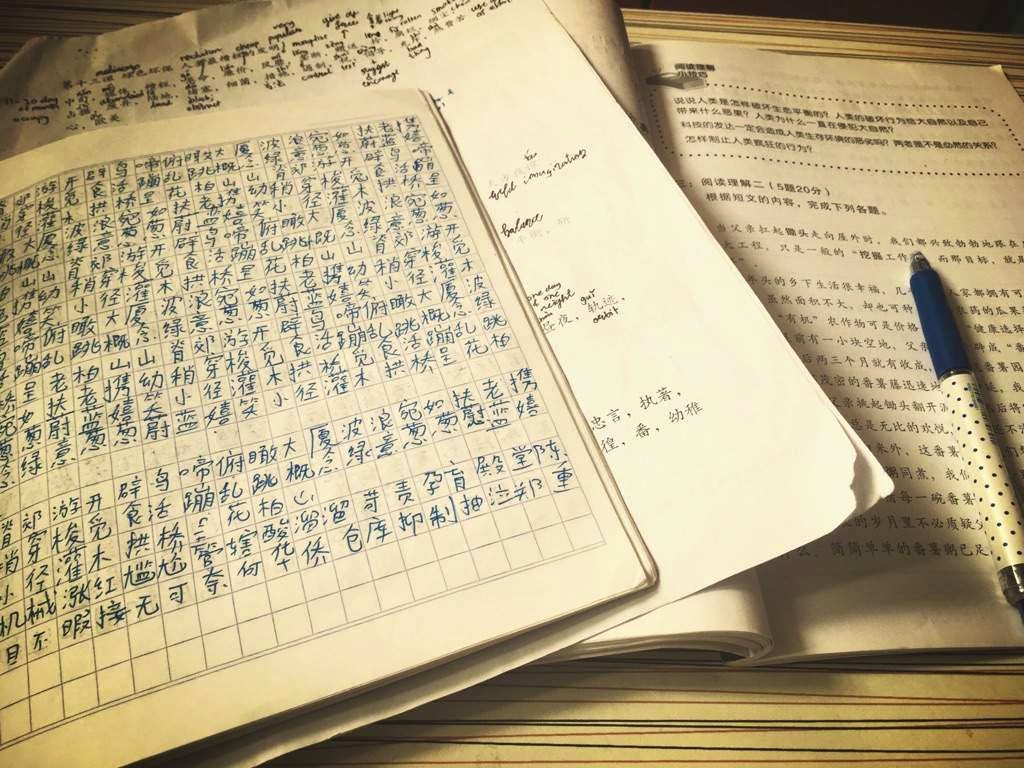
Speaking Resources
It’s strongly recommended to get a one-on-one Chinese teacher who can help you achieve a native and professional level of Chinese speech.
In fact, taking classes with a professional teacher will greatly benefit you in all areas as you study for the HSK 7, 8, and 9.
Do you have any other resources for studying Chinese at an advanced level? Let us know in the comments!
- 5 Chinese Universities Without Application Fee - April 19, 2025
- 9 Best Schools to Study Chinese in Beijing in 2025! - April 6, 2025
- How to Apply to the CSC Scholarship Step by Step - March 30, 2025

